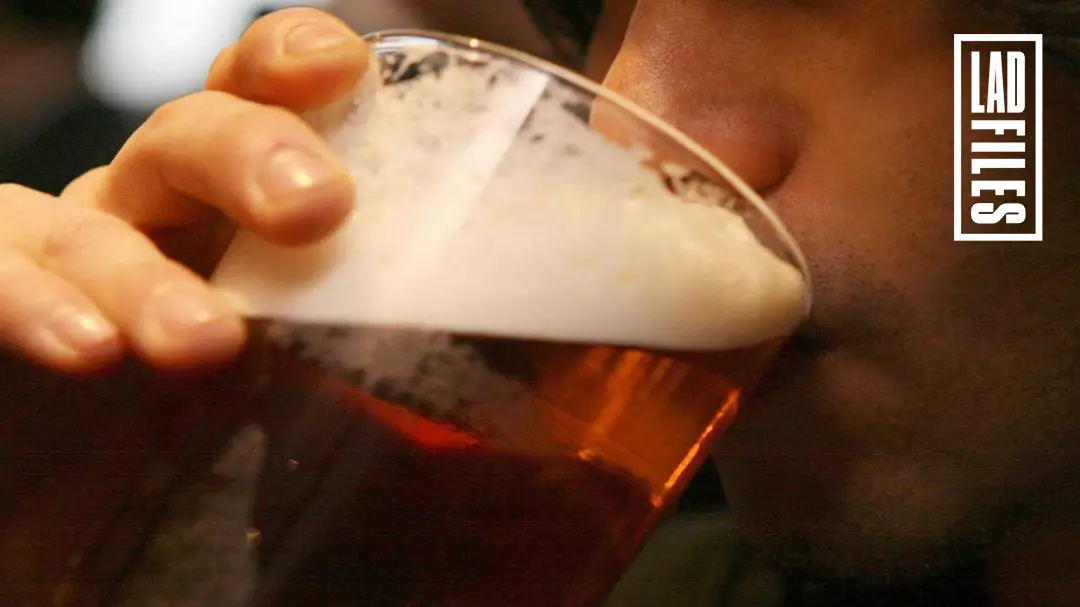
As a nation, we Brits traditionally love a beer.
Whether it's stealing that sneaky cold one from your parents' fridge or nervously ordering your first pint at the pub, we are fixated on it. It's an oddly established rite of passage that often becomes a staple well into your adult life.
Speak to almost anyone in other European countries, and you'll find that the British are renowned for their love of drinking - to excess. The 'Brits abroad' tag is a result of a generation of stag dos and summer holidays where drinking as much as possible and ending up in a state is almost part of the deal.
Advert
Not only that - visit almost any UK town and city on a Friday or Saturday night and the binge boozers will be out in force.
But many young people are bucking the trend, choosing to ditch the booze and the hangover that comes with it.
In turn, the UK is seeing a spike in demand for no or low-alcohol booze, sober clubbing groups, and 'mindful festivals'.
According to a report in medical journal BMC Public Health, the proportion of teetotal 16 to 24-year-olds rose from 18 percent in 2005 to 29 percent in 2015. Over the same period, binge drinking was down from more than a quarter of young people (27 percent) to 18.
Advert
Put simply, getting leathered just isn't as attractive as it used to be.
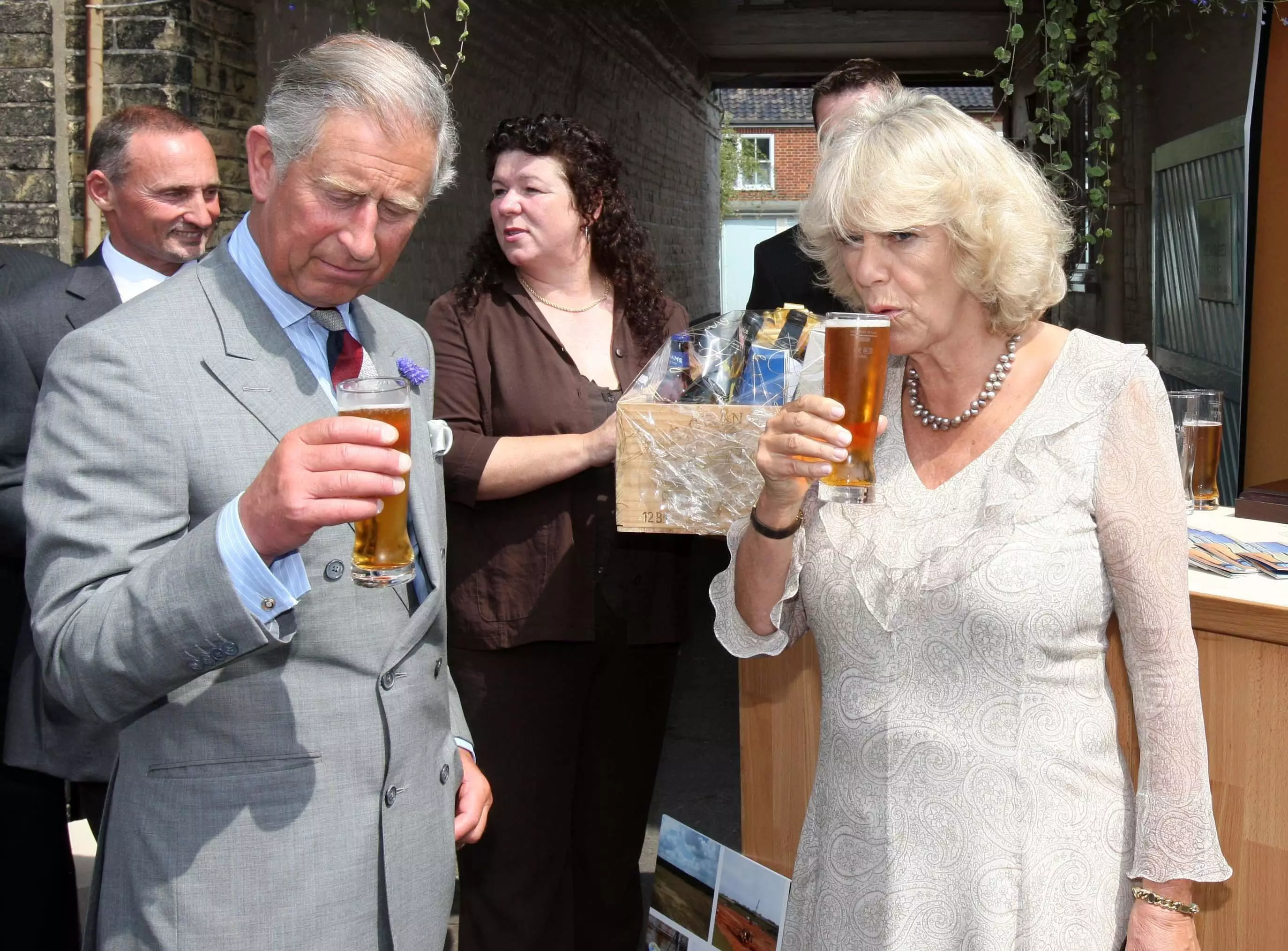
Harry Jones, 22, had been a drinker since he was 17 but went sober in April last year.
Speaking to LADbible, he said booze started to dominate his life, using it as a crutch at the end of a long working day. But since he ditched the drink, Harry says he feels much better and has no plans on going back.
Advert
"I'm definitely happier," he tells us. "I used to work in the service industry and it was extremely easy to fall into a pattern of drinking, as you are constantly surrounded by it. It's often the only thing you look forward to at the end of your 14-hour shift."
But soon he realised that rather than helping him, alcohol was badly affecting his mental health.
Looking back, Harry says: "I've had depression my entire life and it wasn't until late last year that I was sort of hit with the realisation that my mental health was spiralling and that was mainly down to the fact that I was drinking four to five times a week.
"I had to take time off work to sort myself out and then I just didn't touch it for a while. I was a bit on and off, and tried to dabble in it without letting it affect my mental health, but ultimately decided that I needed to just stop drinking, end of."
Advert
He adds: "Not drinking actually made me realise that I had the skills to get out of hospitality and that I didn't need to spend my life working those ridiculous shifts - and now I have the job I always dreamed of.
"I feel like I'm back on track with my life and definitely more on top of my mental health now."
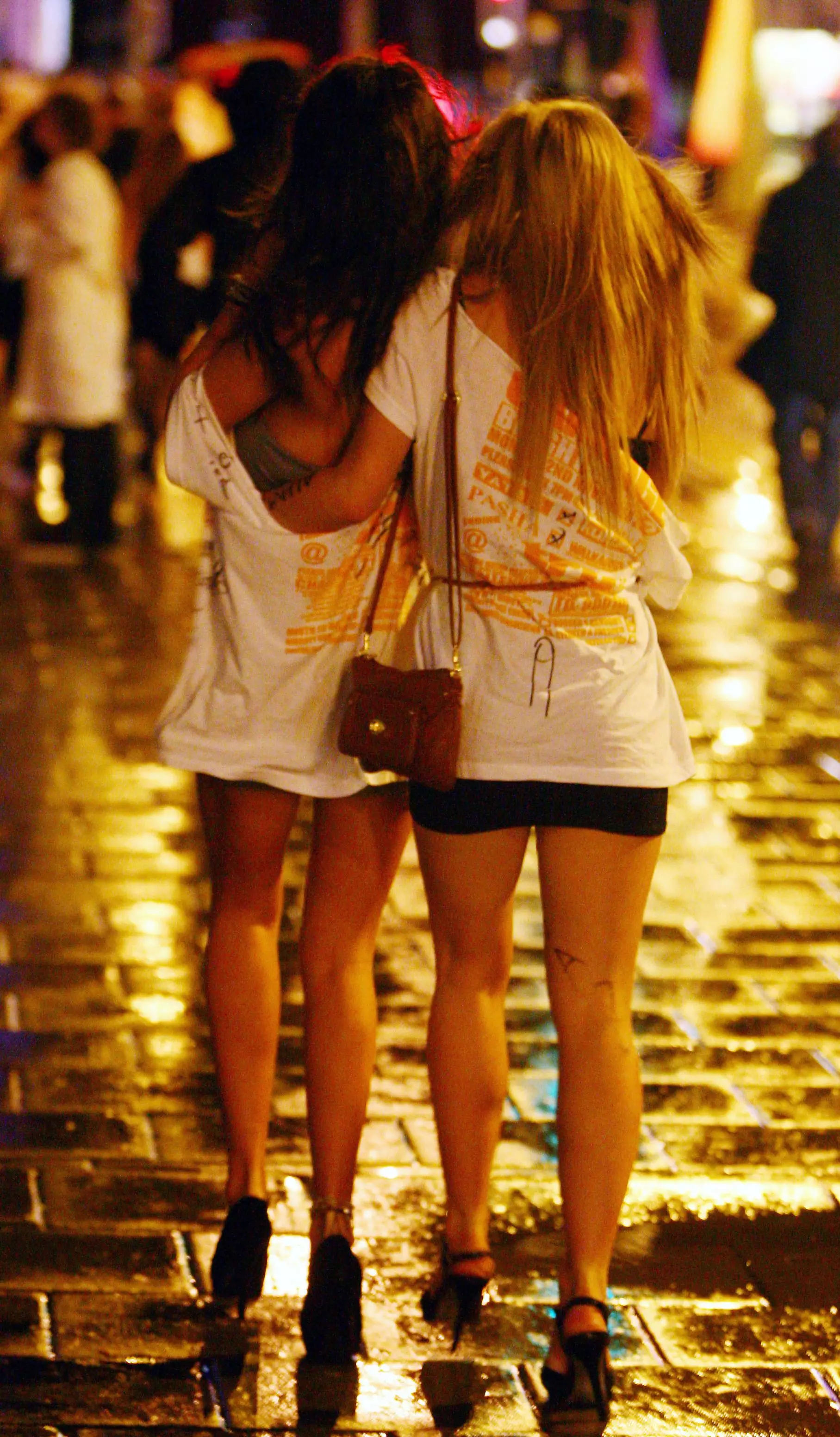
Treatment for alcohol-related conditions is estimated to cost the NHS around £3.5bn per year - or £120 for every taxpayer and 3.6 percent of its annual budget - according to the latest available figures from the Health and Social Care Information Centre (HSCIC).
Advert
But the turnaround isn't just a case of former heavy drinkers realising that it just wasn't for them anymore.
University researcher Sarah Garvey is one of a growing number of young adults who has, despite having tried alcohol, never taken up drinking, instead putting her health and happiness ahead of social pressures.
"The main reason I don't drink is simply because I don't actually like it," she says. "And secondly because of its health impacts. My not drinking on health grounds is more pre-emptive, because I am aware of the adverse effects it has on many people.
"I once read about the impacts of alcohol on the brain, and something about it stuck - particularly when I was doing exams and wanted to have as clear a head as possible. Since then I've never seen any reason to change my mind."
Looking back at her time at uni, Sarah says she envies the opportunities younger people have today, compared to when she was studying.
"I think with young people particularly, when you're at an age where you want to fit in, for example, at the start of uni, it's definitely a harder option to not drink," she explains.
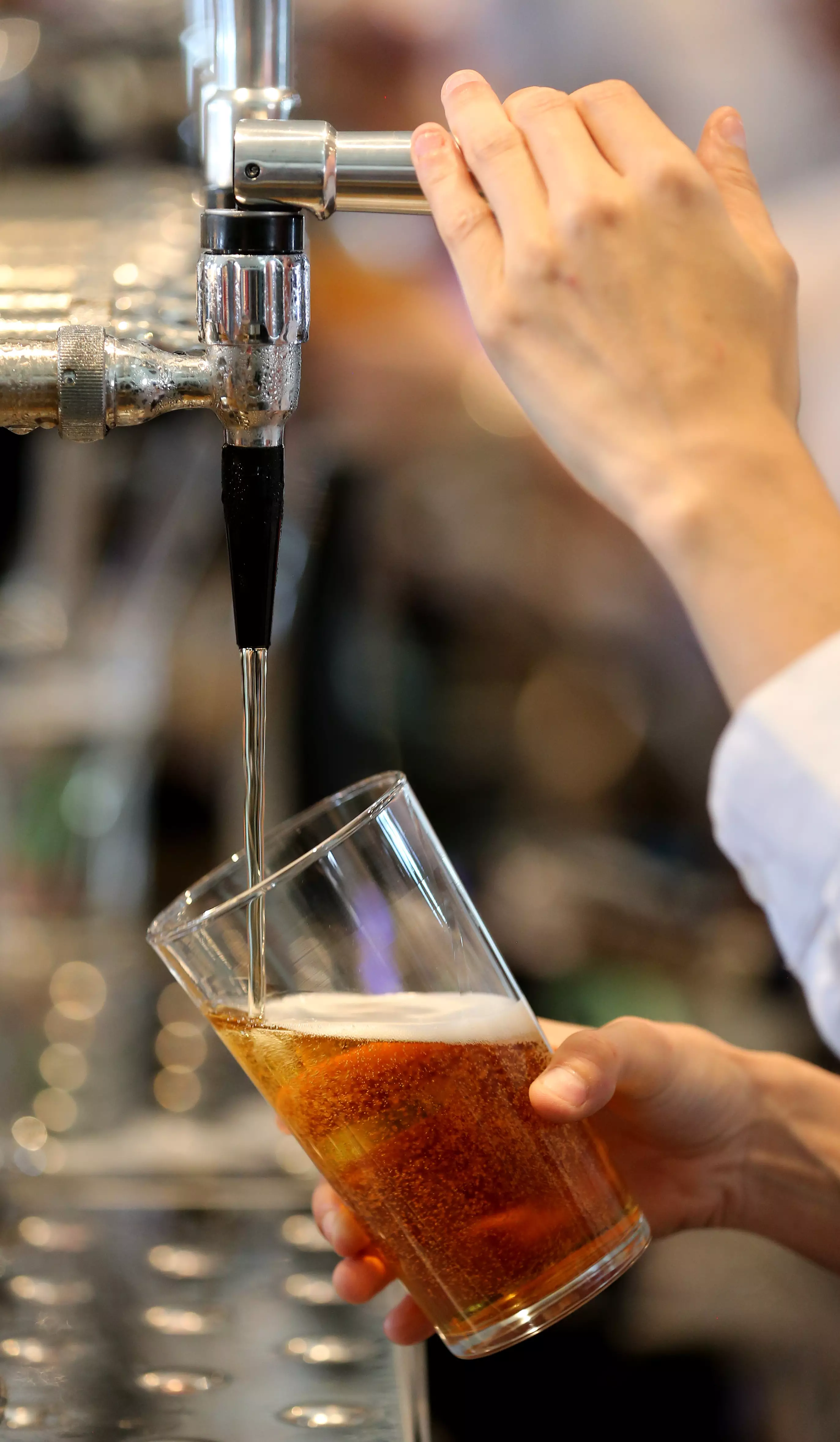
"At uni they ran some non-drinking events in Freshers' week, but only a couple of people would turn up, which was quite demoralising.
"I think it's getting better; more student societies are now running non-drinking events, but this wasn't the case when I was at university. I was the exception rather than the norm."
She adds: "I always feel quite jealous when I read about new university initiatives aimed at non-drinkers, because I definitely feel I missed out when I was there."
This has led to groups such as Club Soda, which offers support and advice to people looking to cut down on their alcohol intake - such as guides to the best drinks available, as well as organising 'Mindful Drinking Festivals'.
The group say: "We have nothing against alcohol (in moderation). There are plenty of beer festivals and other such events, and that's great. But at these festivals we usually only have drinks that are either alcohol-free, or under 0.5 percent ABV.
"Our Mindful Drinking Festivals are about bringing some of our favourite drinks into one place for everyone to try. Whether you are on a health kick, moderating your drinking habits, pregnant or trying, or just a bit sober curious, this is your chance to find a new favourite tipple."
They add: "Our goal is simple: a world where nobody has to feel out of place if they're not drinking."
While this trend may seem like bad news for big breweries, it's quite the opposite; business is booming, with firms investing heavily in low- and no-alcohol drinks to sell to the mindful masses.
Over the past year alone, the industry in the UK has grown by £22.5 million, with the adult soft drinks trade worth more than £200m.
David Scott is the director of brand and insight at Carlsberg UK and says it has opened up a new market for booze firms.
He tells us: "Four in five people are now really thinking about their alcohol habits and plan to moderate their drinking. This presents a significant consumer movement and opportunity for pubs."
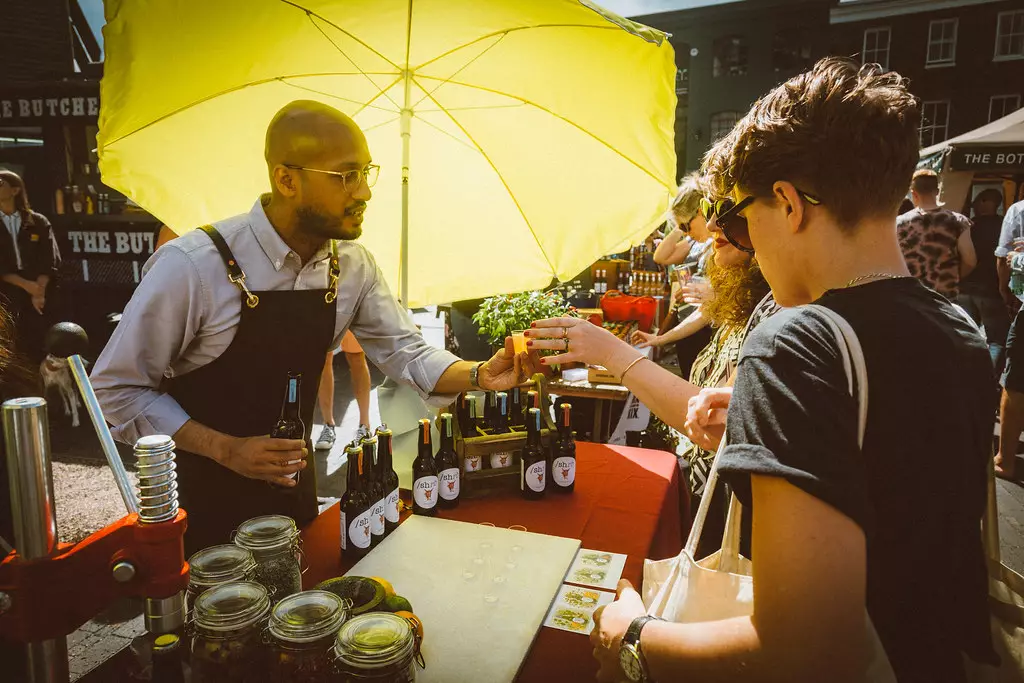
But it's not just about beer; part of the reason some people don't drink, such as Sarah for example, is because they just don't like the stuff.
Research carried out by Distill Ventures found that 58 percent more people are drinking low-alcohol drinks this year than last, while 61 percent more said they want a better choice.
Anja Madhvani is a brand ambassador at Cloudwater Brew Co., based in Manchester, which recently launched its own range of 'sodas' in a bid to entice young drinkers who don't like the taste of traditional lagers and ales.
She says: "There is a definite shift in drinking behaviour, it seems that more people than ever are thinking about how their drinking choices affect their health, both mentally and physically, as well as financially.
"We see customers strategising their drinking a little more, for example alternating between full-strength and alcohol-free drinks.
"More and more producers are creating alcohol-free versions of their existing product range. We opted to create sodas with complex flavour profiles and low calories. This makes the product inclusive for people who have had difficult relationships with drinking, or who have never been fans of alcohol. It also makes it a great option for people who love beer but want to pace their drinking."
Beer shops have started to increase their stocks of low- or no-alcohol beers and in Marlow, Buckinghamshire, there's a whole shop dedicated to the stuff. Founder Phil Coles - who opened The Zero Option as a pop-up in the summer before turning it permanent just before Christmas - thinks that it might be the only bricks and mortar shop of its type in the UK.
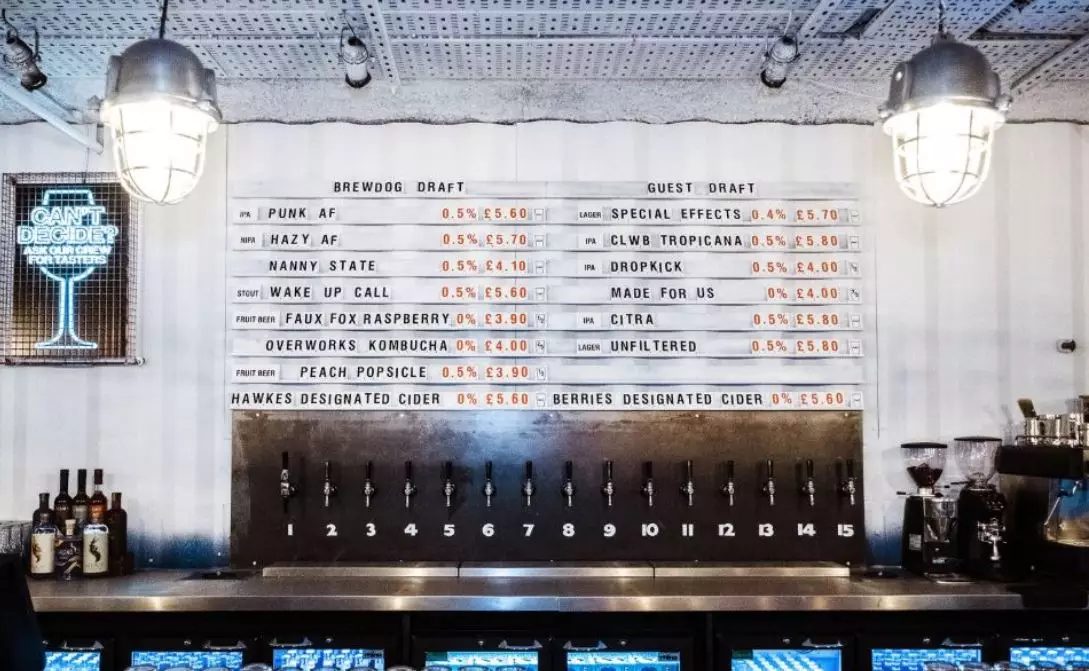
"There's a lot of interest among consumers in no and low alcohol and they have been very badly served historically in pubs but also in shops," he told the Bucks Free Press.
"The industry has woken up and everyone is jumping up on this opportunity. And historically, the product has been out there but has been hidden.
"Consumers are either trying to drink less alcohol, some people want to cut it out, some people don't want to drink anymore, some people do it lose weight and some people do it for medical reasons.
"Supermarkets are starting to sell it, pubs are starting to sell it, but we've decided to take the lead on it."
Coles said the shop had seen a boom in Christmas sales as consumers had gotten behind the burgeoning movement.
Research by CGA shows that volume sales of non-alcoholic beers increased by 28 percent in the year to February 2019, and in pubs, sales have increased by 3.8 percent in 2019, to £20m.
Heineken, Becks and San Miguel lead the way for on-trade sales but the number of products is increasing, as breweries like Big Drop, Infinite Sessions, and Thornbridge start to ramp up their presence in pubs, supermarkets and other high street shops. Brewdog has even opened what it claims to be the world's first alcohol-free bar.
The rise of craft beer has shown that low-alcohol beers can still pack a flavourful punch, without leaving you feeling battered and bruised the day after.
And with the number of young teetotallers only expected to grow over the coming years, Cloudwater's Madhvani says breweries need to adapt if they are to survive.
She adds: "In the coming years I think the number of people being more mindful about their drinking will only rise, and the industry needs to meet these consumers with worthy choices."
Featured Image Credit: PA/LADbibleTopics: UK News, lad files, Interesting, Drink, Alcohol, Beer